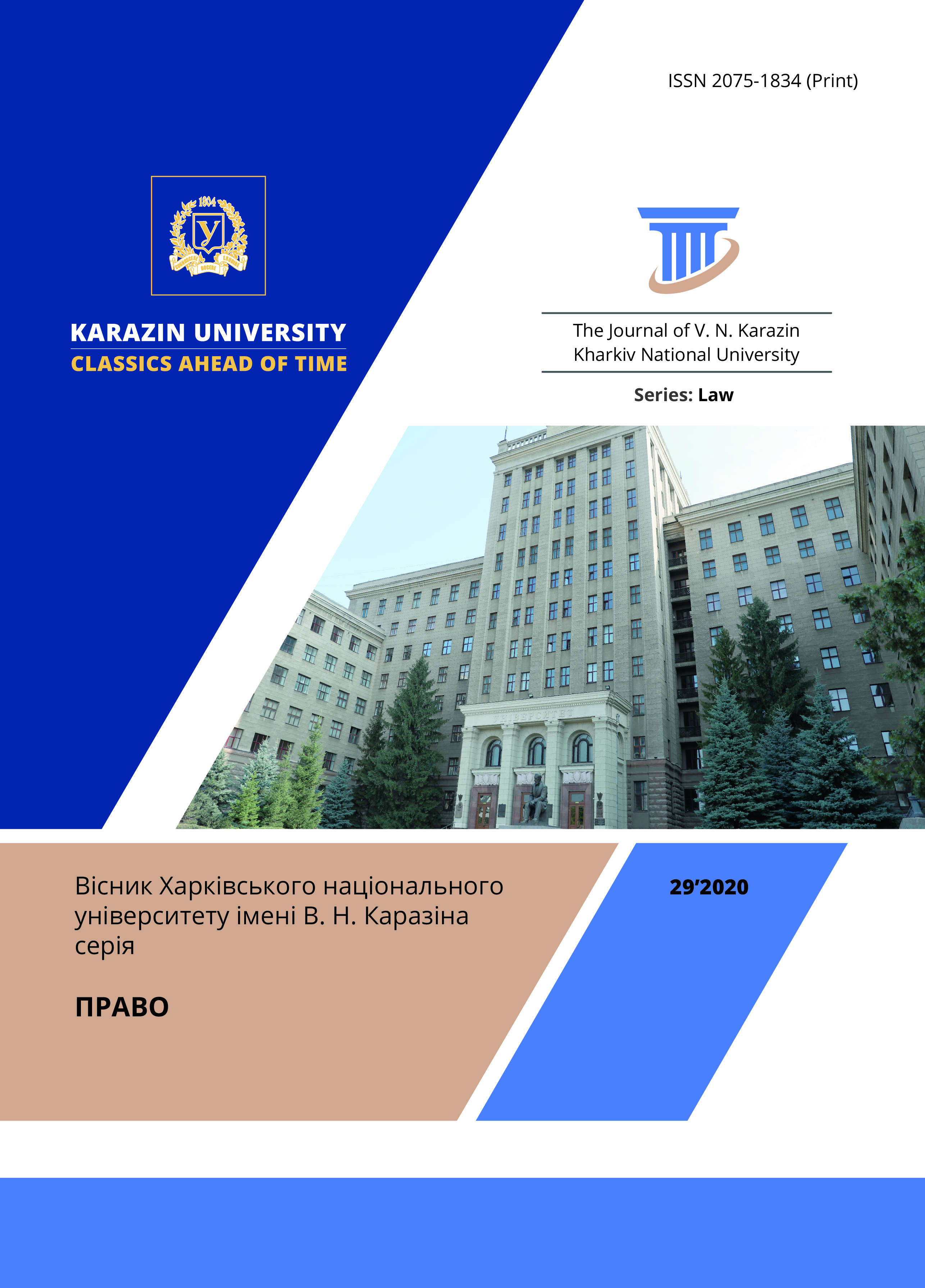FEATURES OF ESTABLISHING ARBITRABILITY IN THE COUNTREES OF THE ROMANO-GERMANIC LEGAL SYSTEM
Abstract
: The article is devoted to the analysis of the peculiarities of securing and regulating arbitrability in the countries of the Romano-Germanic legal system, as France, Sweden, Germany and Finland. It is established that arbitration is divided into objective and subjective, each of which has its own specific features in each country's legislation. It is emphasized that French arbitration law is one of the most pro-arbitration in Europe, in particular on matters of arbitrability and public order. Concerning the features of the Swedish regulation of arbitrability, it is stated that arbitrability is determined both by the law applicable to the arbitration agreement and by Swedish law. Unless the dispute is arbitral under one of the above jurisdictions, the arbitral tribunal may not have jurisdiction to hear that particular dispute. It is established that, since the problem of impossibility to enforce an arbitration agreement on a particular issue is, in fact, a problem of the validity of the contract, then the proper moment of verification of arbitrability is the moment of the conclusion of the parties to the arbitration agreement. If the dispute arose at the same time as the parties concluded the agreement and the parties could then settle it amicably, then such dispute shall be arbitrary. The position of the Finnish legislation on limiting the right of a party to an arbitration hearing to request the annulment / refusal of enforcement of an arbitral award on grounds not stated by the arbitral tribunal is analyzed. It has been established that, in the practice of the Finnish courts, there are no examples of restrictions on the right of parties who conclude commercial contracts involving budget (state) financing, to submit disputes from such contracts to the arbitral tribunal. It has been established that any property claim may be the subject of arbitration in Germany. German law reflects the concept of arbitrability, which provides for two conditions for admissibility of the dispute through arbitration: if the subject matter of the dispute does not fall within the exclusive jurisdiction of the German state court (objective arbitrability), and when the parties to the dispute entered into a valid arbitration subjective arbitrage).
Downloads
References
2. Скворцов, О. Ю. Третейский суд. Арбитрабельность споров. О. Ю. Скворцов. Юрист и бухгалтер. 2004. № 2 (15). С. 30-34
3. Хегер, С. Законодательство Австрии о международном коммерческом арбитраже и перспективы его развития.С. Хегер .Третейский суд. – 2004. – № 2 (32). – С. 49
4. Loquin E. L’arbitrage du commerce international. Joly éditions; Lextenso éditions, 2015. No 81 (p. 79–80).
5. Tissot c Neff, Cass. com. 28 novembre 1950. Bull. civ. III, n355. D. 1951. p. 170.
6. G. Wrande and I. Wrande v. S. Wrande. NJA. 2005 p. 276.
7. P.K. Bygg AB and P.-J. K. v. J. S., NJA, 2002. p. 322
8. Finnish arbitration act 1992. URl: https://www.finlex.fi/fi/laki/kaannokset/1992/en19920967_20150754.pdf
9. Zivilprozessordnung § 1025 URL: http://www.gesetze-im-internet.de/zpo/__1025.html
10. Marcus Schönknecht, Beweisbeschaffung in den USA zur Verwendung in deutschen Verfahren. GRURInt 2011. s.1000-1009
Copyright (c) 2020 Yulia Navrotskaya

This work is licensed under a Creative Commons Attribution 4.0 International License.




